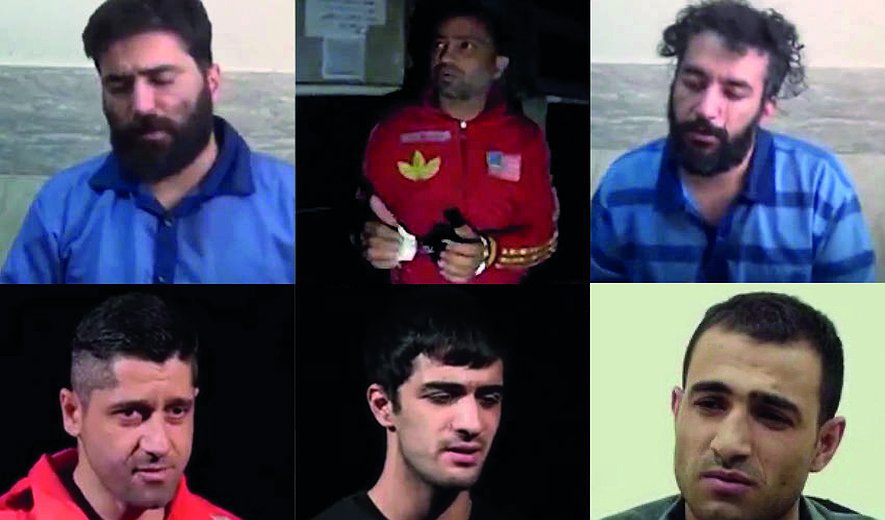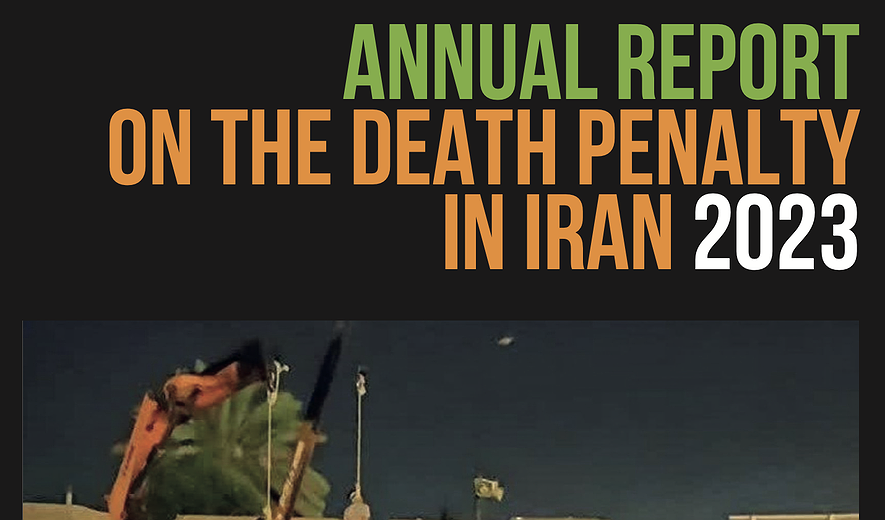Forced Televised Confessions in 2023

This is an extract from the 2023 Annual Report on the Death Penalty in Iran. To read the full report, please click here.
The Islamic Republic has used televised confessions as a propaganda tool aimed at creating fear and justifying the heavy sentences handed down to its political opponents and activists since its inception in 1979. Such confessions are extracted after physical and/or psychological torture, lengthy solitary confinement, threats or promises of reduction in the gravity of sentences and threats against family members. The confessions are often aired after arrest, following public protests to a sentence, or immediately prior to or after the execution as a means of reducing backlash. Airing the forced confessions before trial is a clear violation of the defendants’ right to be presumed innocent until proven guilty and fair trial rights.
Forced televised confessions of some of those executed in 2023: top left to right: Majid Kazemi, Saeed Yaghoubi and Saleh Mirhashemi. Middle left to right: Seyed Mohammad Hosseini, Mohammad Mehdi Karami and Sarkout Ahmadi. Bottom left to right: Shahrooz Sokhanvari, Mohammad Ghaedi Nasab and Mohammad Ramez Rashidi
Of the political prisoners executed in 2023, the torture-tainted confessions of Mohammad Mehdi Karami, Seyed Mohammad Hosseini, Saeed Yaghoubi, Majid Kazemi, Saleh Mirhashemi and Sarkout Ahmadi were aired prior to the commencement of any legal proceedings.
At trial, not only are forced confessions used as evidence of guilt, but under threats and coercion, the defendants are often forced to repeat the false accounts in court. Once the defendant has been found guilty, their forced confessions are again used as a propaganda tool to justify their death sentences. This has been the case for sentences that have sparked outrage like that of the defendants in the Karaj case (Mohammad Mehdi Karami and Seyed Mohammad Hosseini) and the Khaneye Isfahan case (Saeed Yaghoubi, Majid Kazemi and Saleh Mirhashemi). Forced confessions are also aired post-execution to justify the inhumane punishment of death.
On 19 January 2023, the EU Parliament adopted a resolution in which it strongly condemned “the Islamic Republic’s policy of forcing confessions using torture, intimidation, threats against family members or other forms of duress, and the use of these forced confessions to convict and sentence protesters.”


